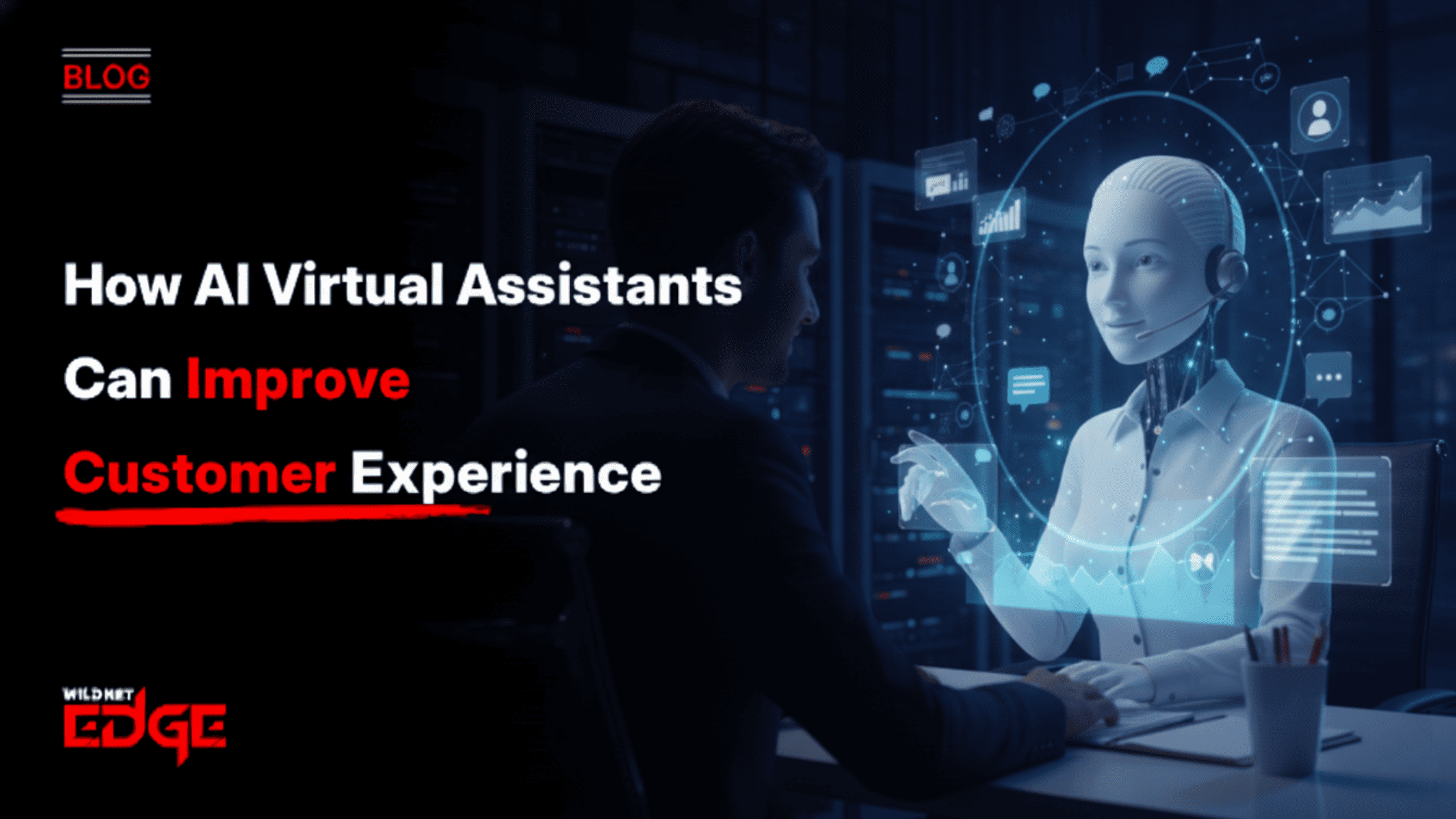TL;DR
This article explores how AI virtual assistants transform customer experience by providing instant, personalized, and scalable support. It highlights how modern AI chatbots use natural language processing to handle complex inquiries 24/7, reducing wait times and operational costs. The guide emphasizes that superior AI-driven support boosts customer satisfaction, loyalty, and business performance, making adoption a strategic imperative.
In the era of instant gratification, businesses can no longer rely on traditional support alone. Delivering a standout AI virtual assistant customer experience has become essential to meet customer expectations around the clock. These intelligent assistants don’t just answer questions; they provide personalized, real-time support, reduce wait times, and scale effortlessly with demand. For companies looking to stay ahead, a well-crafted AI virtual assistant customer experience isn’t optional it’s the secret to keeping customers satisfied, loyal, and engaged in today’s competitive market.
What is an AI Virtual Assistant?
An AI Virtual Assistant software program uses artificial intelligence (AI), machine learning (ML), and natural language processing to understand and respond to human inquiries. Unlike a simple, rule-based chatbot that follows a rigid script, an AI assistant can understand the intent behind a user’s question, access relevant data, and provide a helpful, conversational response.
It acts as a digital front line for your customer service, capable of handling a wide range of tasks, from answering frequently asked questions to guiding a user through a complex process. This level of customer support automation allows businesses to scale their service operations efficiently.
The Core AI Chatbot Benefits for Customer Experience
Integrating an intelligent assistant into your customer service strategy delivers powerful benefits that will benefit both your customers and your bottom line.
24/7, Instant Availability
Your customers’ questions don’t stop at 5 PM. One of the most significant AI chatbot benefits is round-the-clock availability. An AI assistant can provide instant answers and solutions at any time of day or night, anywhere in the world. This immediate responsiveness is a significantly impacts customer satisfaction. According to industry reports, a fast response time is one of the most essential attributes of a positive customer experience.
Consistent and Accurate Information
Humans can have bad days; they may forget details or give slightly different answers to the same question. An AI assistant, on the other hand, delivers perfectly consistent and accurate information every single time. It draws from a single, approved knowledge base, ensuring that every customer receives the same high standard of service, which is critical for building trust and reliability.
Hyper-Personalization at Scale
By integrating with your CRM and other business systems, an AI assistant can access a user’s history to provide a highly personalized interaction. For example, it can instantly look up a customer’s order status, understand their subscription level, or see their past support tickets. This context allows the assistant to provide solutions rather than generic advice, making the customer feel understood. This is a key service provided by a leading AI Automation Agency.
The Power of Customer Support Automation
A key goal of implementing an AI assistant is effective customer support automation. It’s about creating a more efficient and intelligent support ecosystem. An AI assistant can:
- Handle High-Volume Queries: It can manage thousands of conversations simultaneously, something no human team could ever do.
- Sort and Escalate: The assistant can handle all Tier-1 questions and then intelligently route more complex issues to the correct human agent, providing them with the full context of the conversation.
- Automate Data Entry: It can automatically log every interaction in your CRM, saving your employees valuable time.
Our AI Assistant Services in Action: Case Studies
Case Study 1: An eCommerce Brand’s Post-Purchase Support
- The Challenge: A fast-growing online retailer was being overwhelmed with “Where Is My Order?” support tickets. Their small team was spending most of its day looking up tracking numbers, which was inefficient and costly.
- Our Solution: We deployed an AI assistant on their website and integrated it with their shipping and order management systems. The assistant could securely access a customer’s order history and provide instant, real-time tracking information.
- The Result: The company was able to automate over 80% of its inbound support queries. This reduced the support team’s workload, allowing them to focus on more complex issues like product returns and exchanges, leading to a much better overall AI virtual assistant customer experience.
Case Study 2: A SaaS Company’s In-App Guidance
- The Challenge: A B2B SaaS company had a powerful but complex product. New users were often confused and would submit a high volume of basic “how-to” questions, leading to a high churn rate in the first 30 days.
- Our Solution: We built a proactive, in-app AI assistant. The assistant could see what page a user was on and proactively offer contextual help and tutorials. It could guide them through key workflows and answer questions without the user ever having to leave the application.
- The Result: The company saw a 40% reduction in support tickets from new users. The improved onboarding experience led to a 15% increase in user retention after the first month.
Our Technology Stack for AI Assistants
We use a modern, scalable stack to build intelligent conversational experiences.
- AI & NLP Frameworks: Google Dialogflow, Microsoft Bot Framework, Rasa, OpenAI
- Integration Platforms: Zapier, MuleSoft, Workato
- Cloud Platforms: AWS, Google Cloud, Microsoft Azure
- CRM Integration: Salesforce, HubSpot, Zendesk
Conclusion
In the end, an exceptional AI virtual assistant customer experience is a powerful competitive differentiator. By opting for customer support automation, you can deliver the instant, personalized, and 24/7 service that modern customers demand while reducing your operational costs. This is not about replacing your human team; it’s about empowering them to do their best work.
Ready to transform your customer support? At Wildnet Edge, our AI-first approach ensures we build more than just a chatbot; we create an intelligent system designed to Automate Business Processes and deliver a truly superior customer experience that builds loyalty and drives growth.
FAQs
You can often see an ROI very quickly, sometimes within 3 to 6 months. The return comes from the direct cost savings of deflecting a high volume of support tickets from your human team, which allows you to scale without increasing headcount.
Customer frustration usually comes from bad bots that don’t understand them. A well-designed AI assistant that can quickly and accurately solve a user’s problem is often preferred over waiting in a queue for a human. The key is to also provide a seamless and easy way to escalate to a human agent if needed.
The AI is trained on your specific business data. This includes your existing knowledge base, past support ticket conversations, and product documentation. The more high-quality data it has, the smarter and more accurate it will be from day one.
Modern AI and NLP platforms have excellent multilingual capabilities. An assistant can be trained to detect a user’s language automatically and respond fluently in dozens of different languages, making it a perfect tool for global businesses.
The biggest mistake is launching it without a clear escalation path. The AI will not be able to answer every question. You must have a simple and obvious way for a user to say, “I need to talk to a human,” and be seamlessly transferred to a live agent.
A powerful AI assistant can be integrated to perform multiple tasks. For example, it can help users process a return, update their account information, or even make a new purchase directly within the chat interface, a key part of effective customer support automation.
The first step is a use case analysis. Analyse your current support ticket data to identify the most frequent and repetitive questions your customers ask. This will help you design an initial version of the assistant that will have the biggest and most immediate impact.

Managing Director (MD) Nitin Agarwal is a veteran in custom software development. He is fascinated by how software can turn ideas into real-world solutions. With extensive experience designing scalable and efficient systems, he focuses on creating software that delivers tangible results. Nitin enjoys exploring emerging technologies, taking on challenging projects, and mentoring teams to bring ideas to life. He believes that good software is not just about code; it’s about understanding problems and creating value for users. For him, great software combines thoughtful design, clever engineering, and a clear understanding of the problems it’s meant to solve.
 sales@wildnetedge.com
sales@wildnetedge.com +1 (212) 901 8616
+1 (212) 901 8616 +1 (437) 225-7733
+1 (437) 225-7733
















 AI Development Services
AI Development Services Industry AI Solutions
Industry AI Solutions AI Consulting & Research
AI Consulting & Research Automation & Intelligence
Automation & Intelligence













